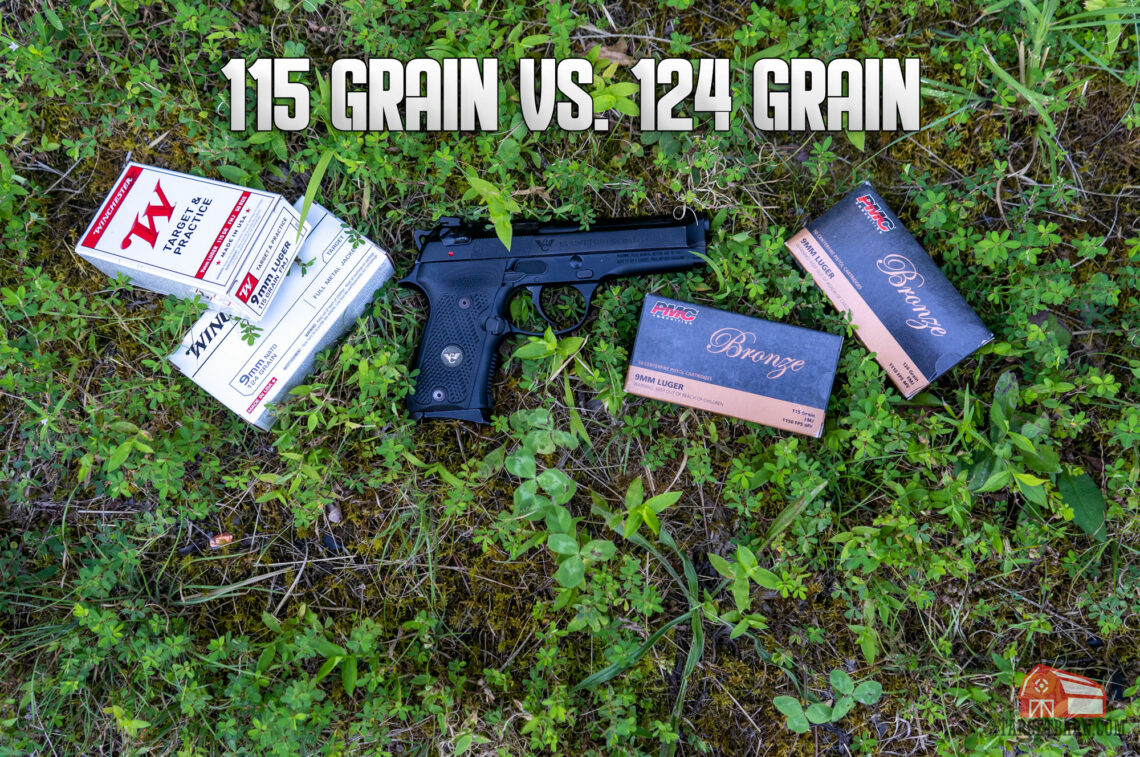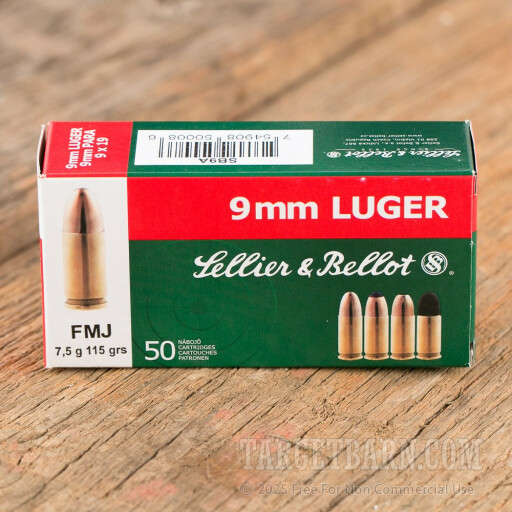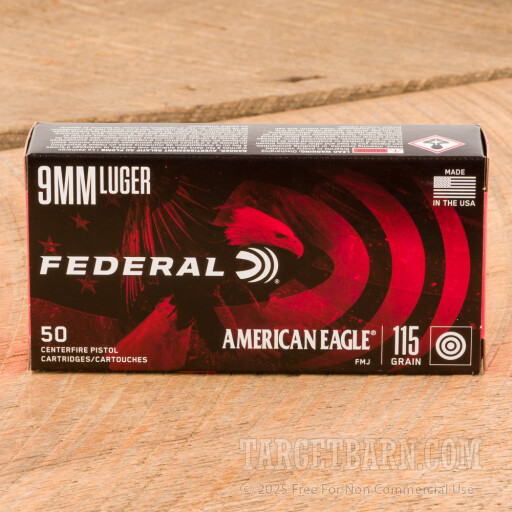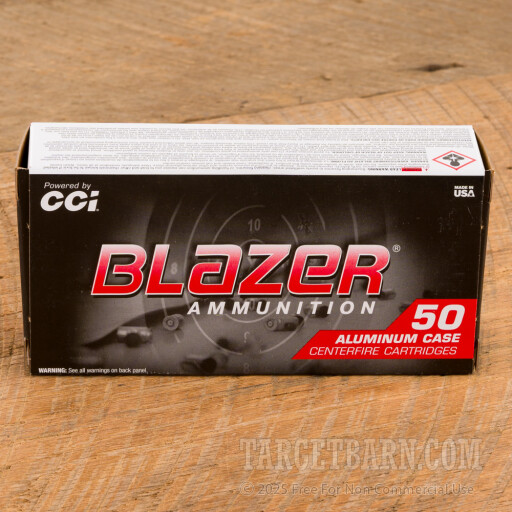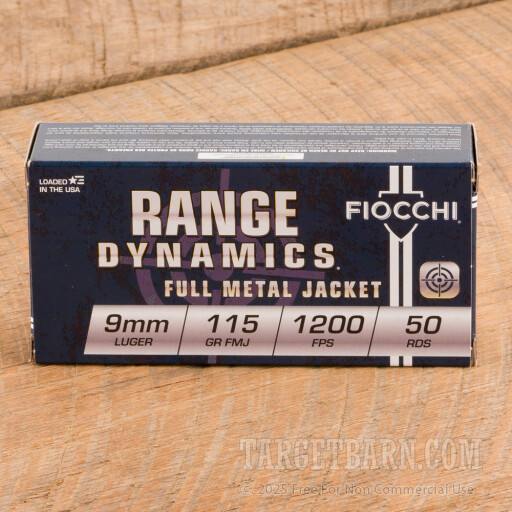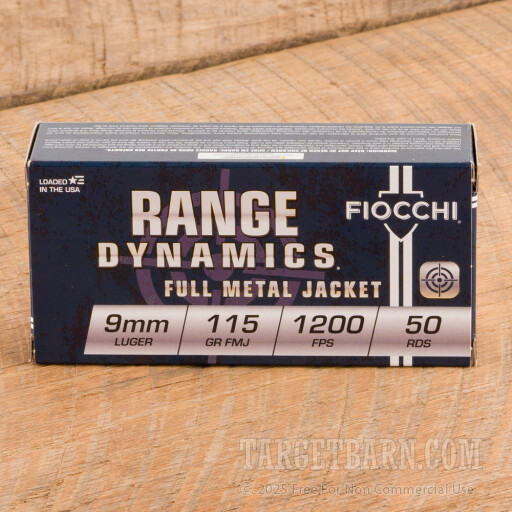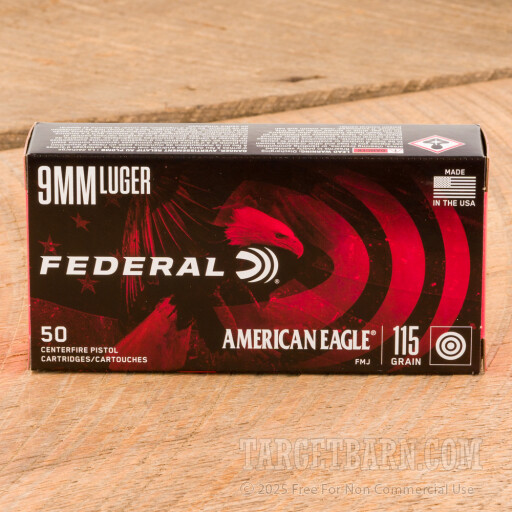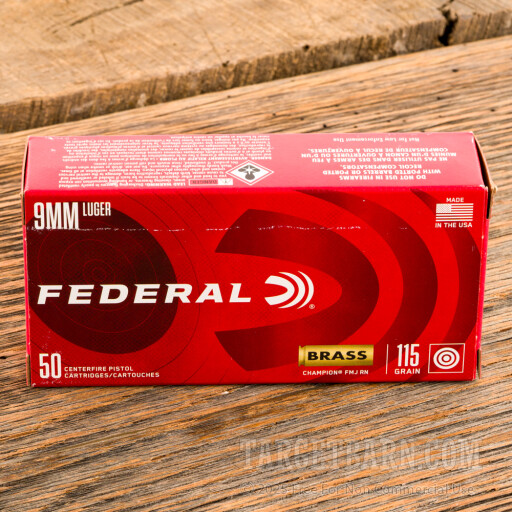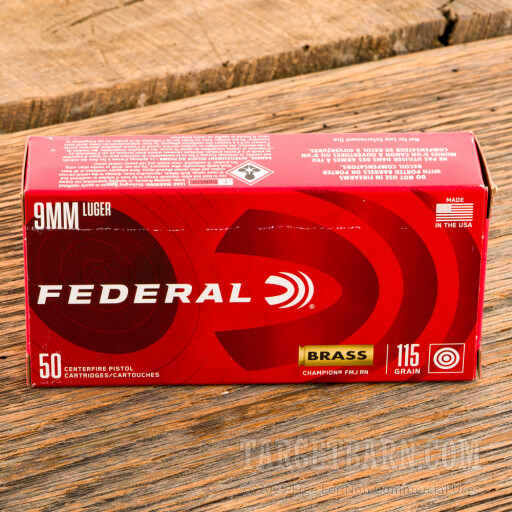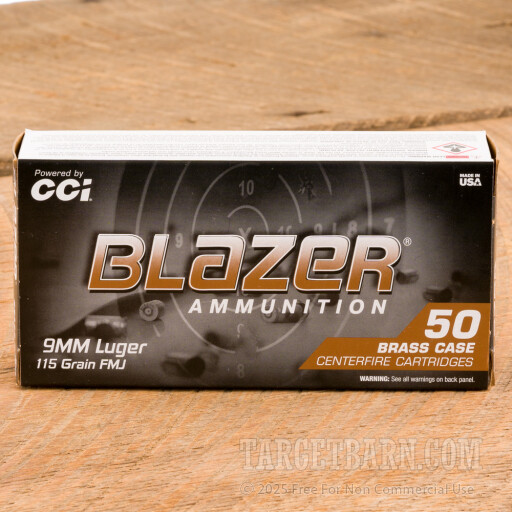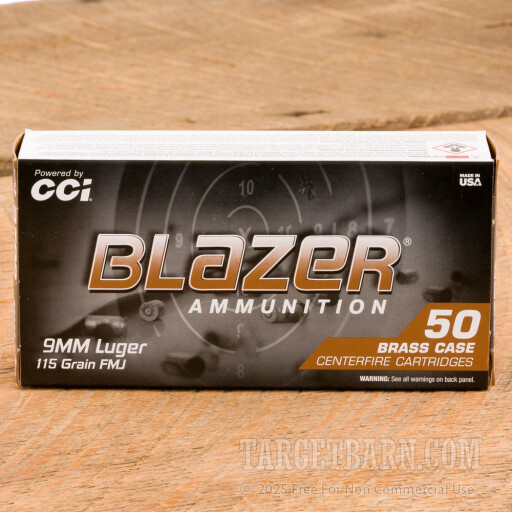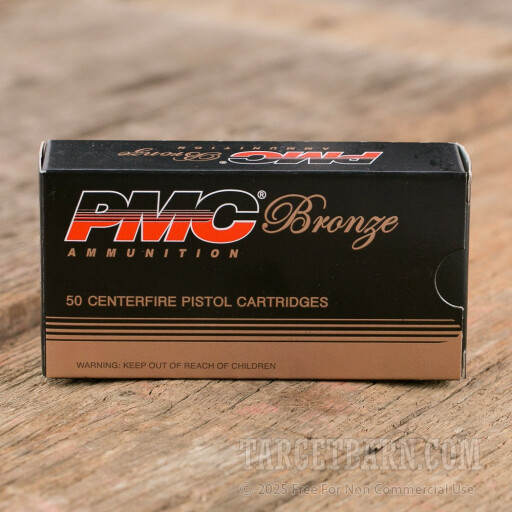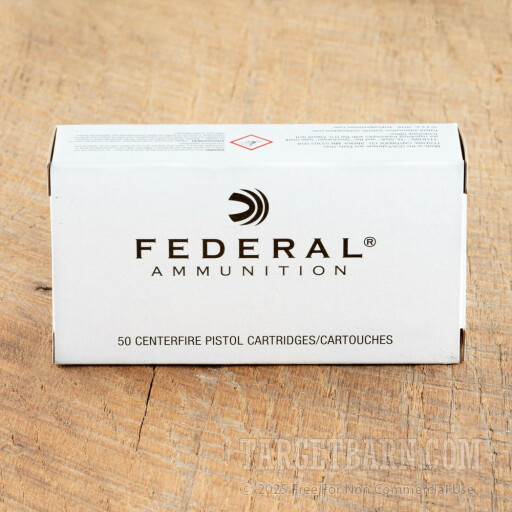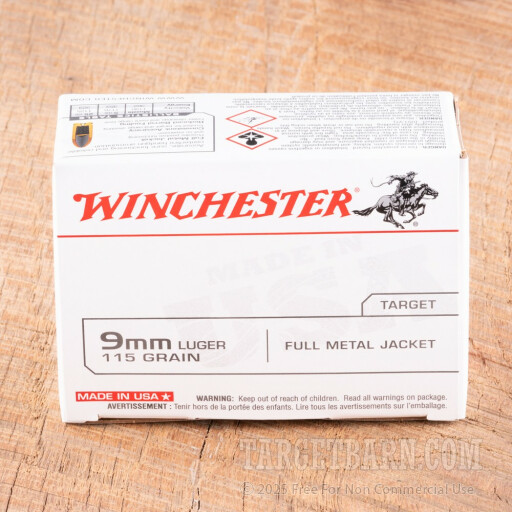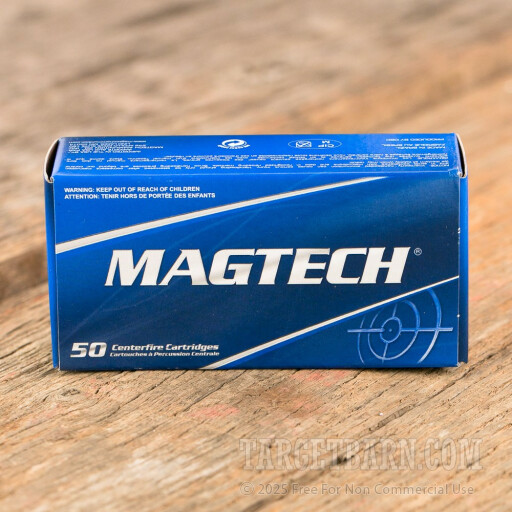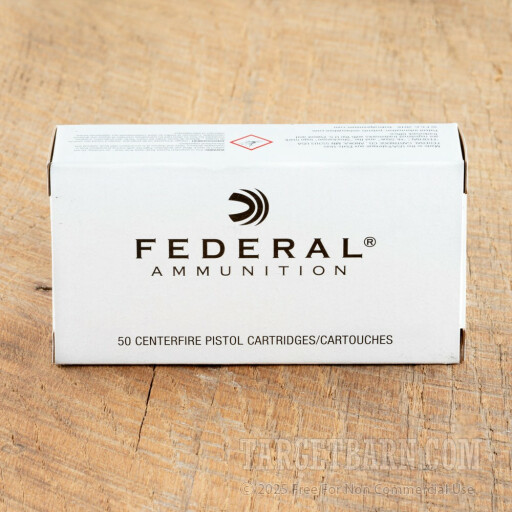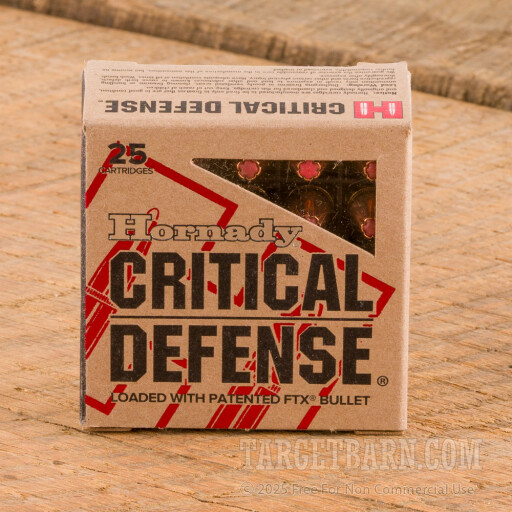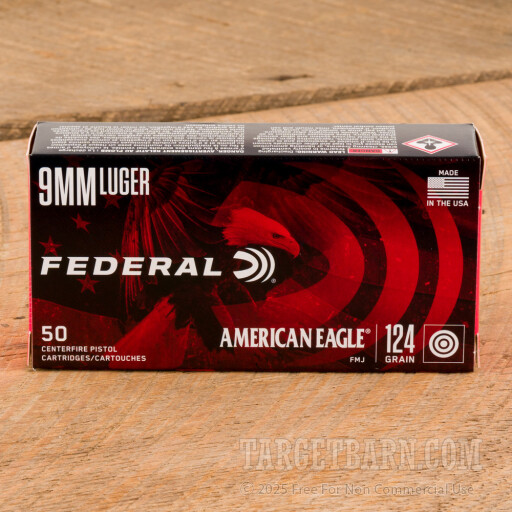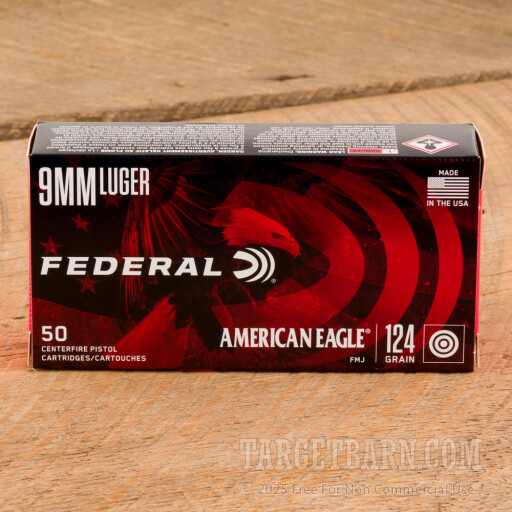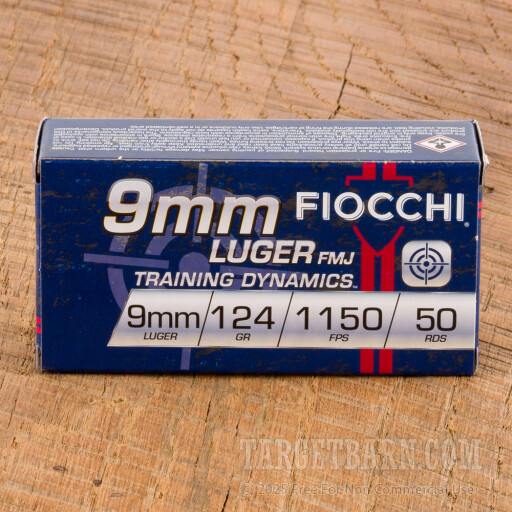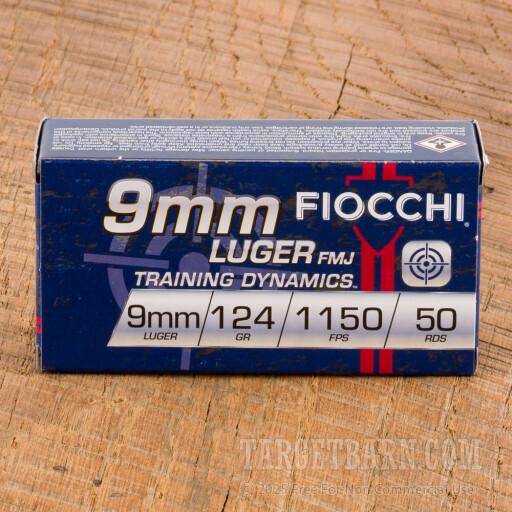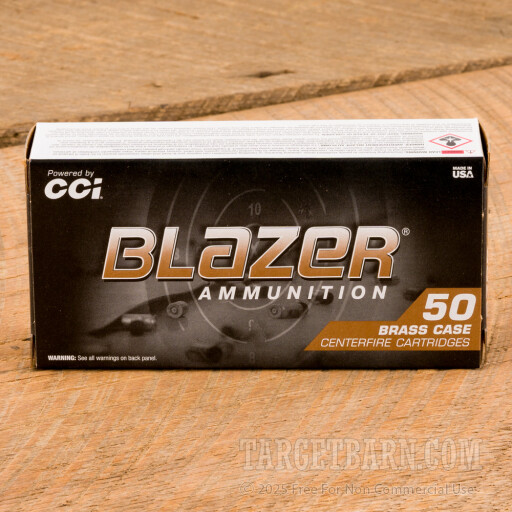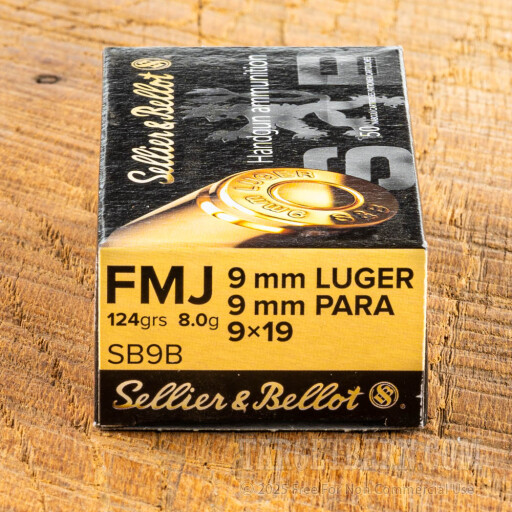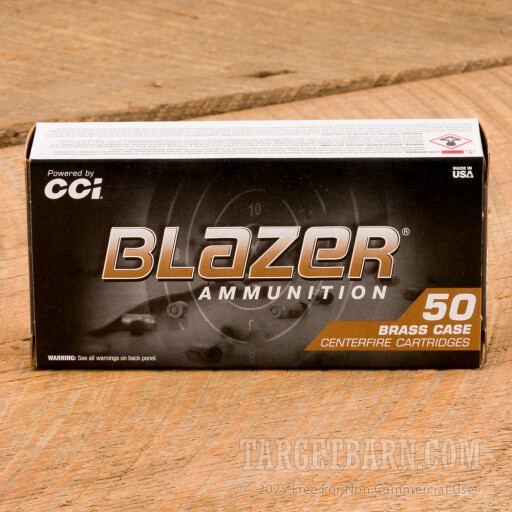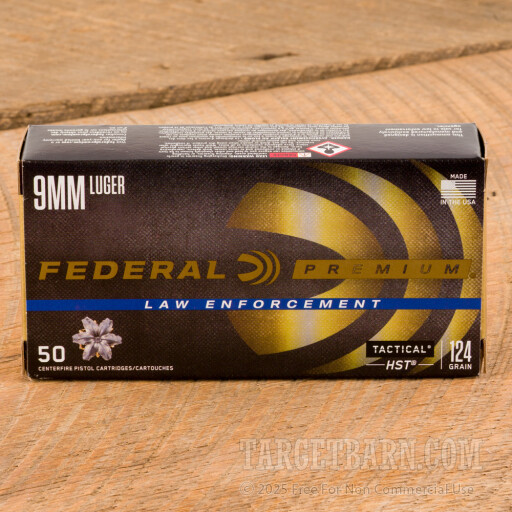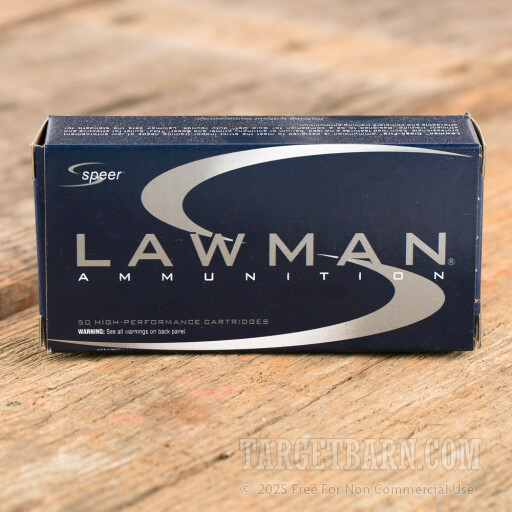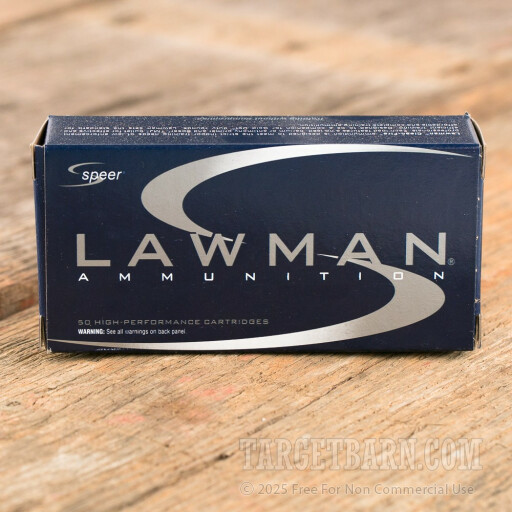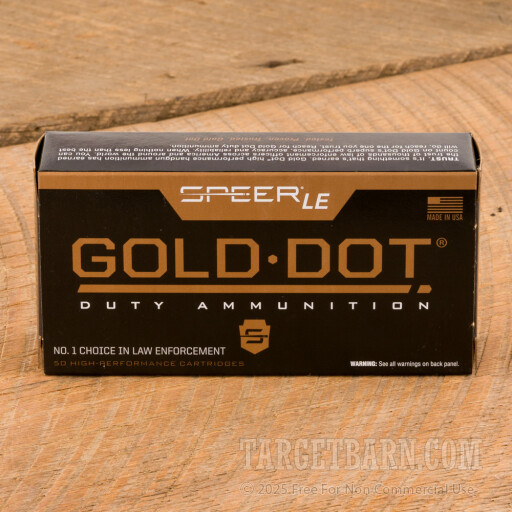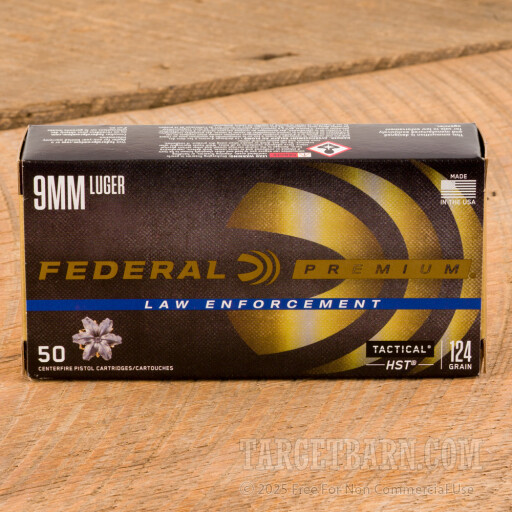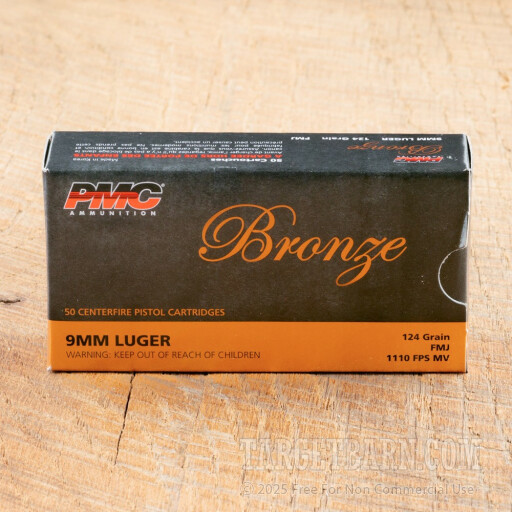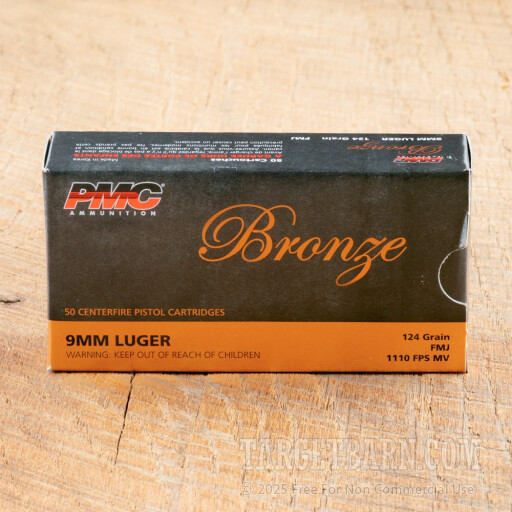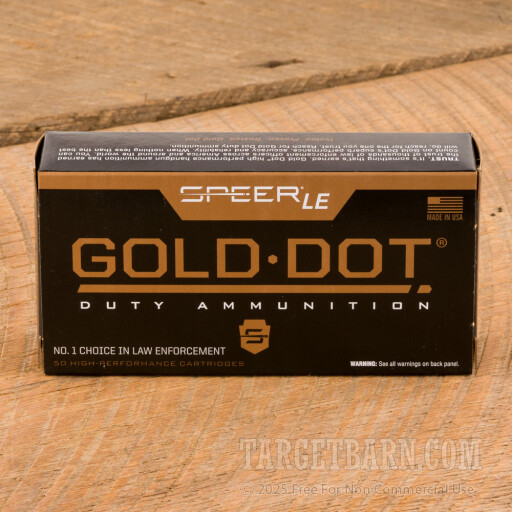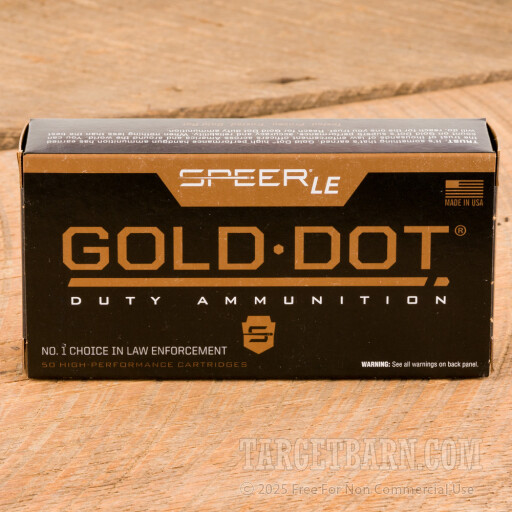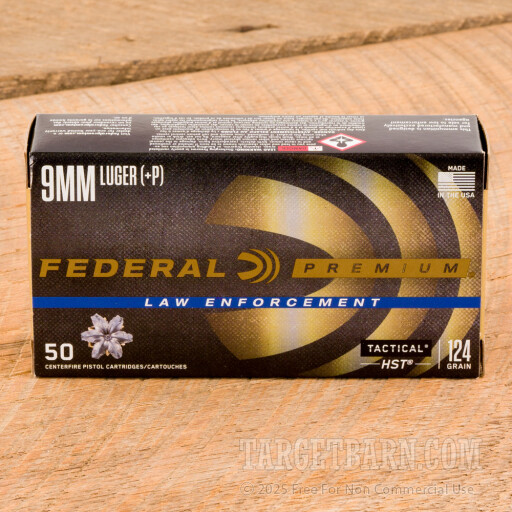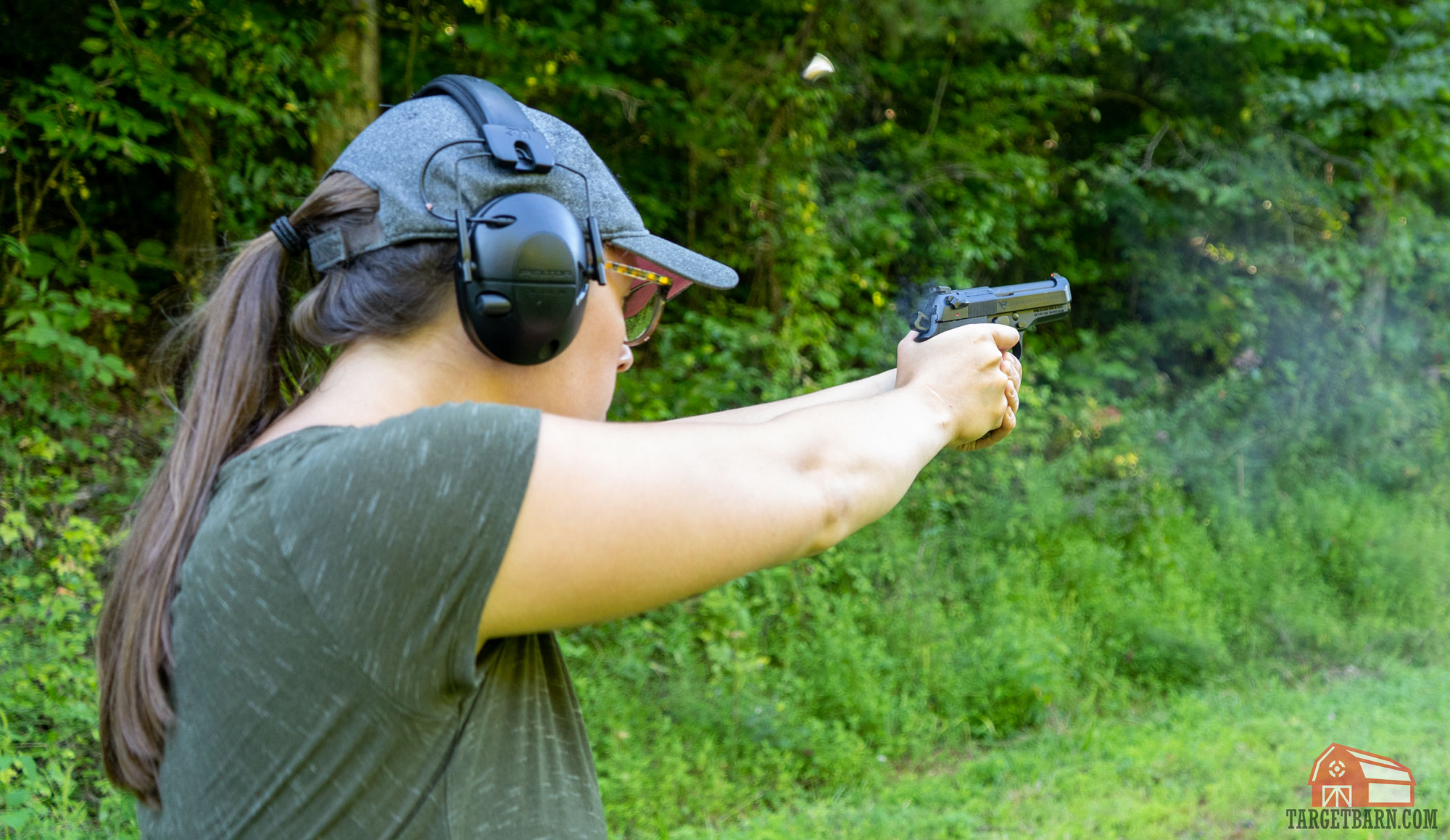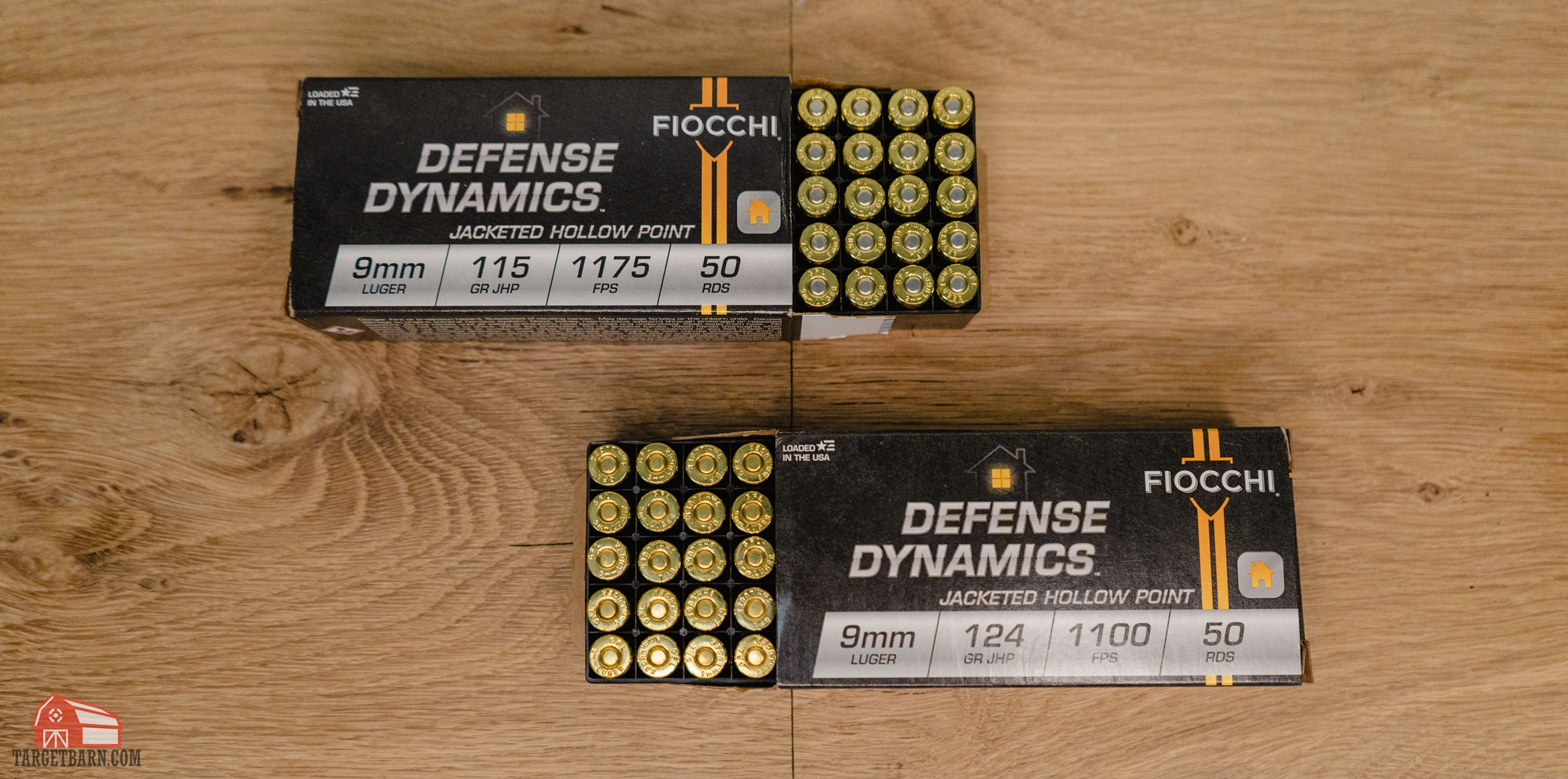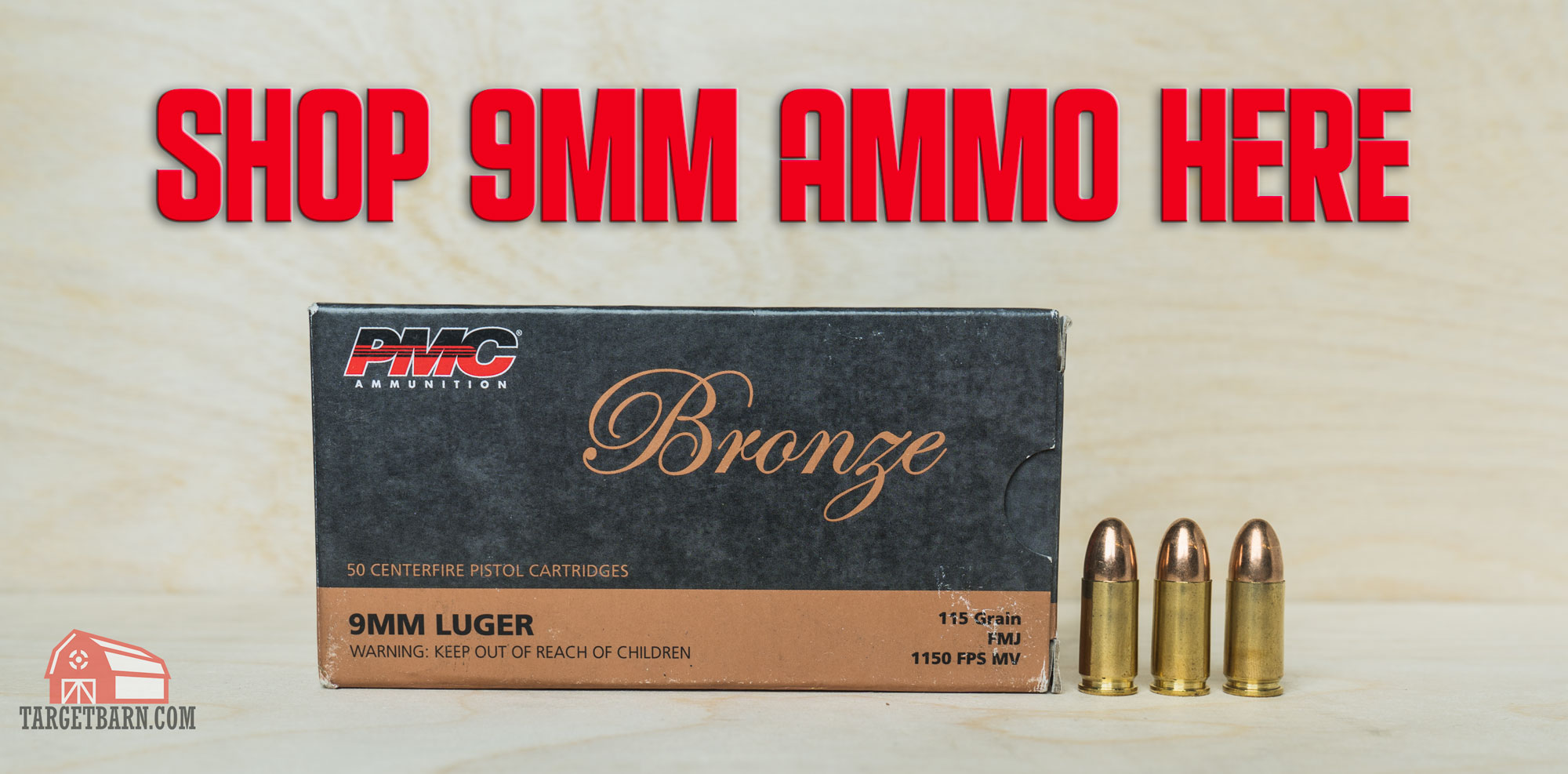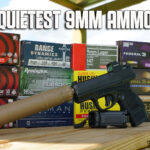When shopping for 9mm ammo, two bullet weights you’ll commonly see available are 115 grain and 124 grain. If you’re newer to shooting, you may be wondering what the difference is between 115 grain vs. 124 grain and which is the better option.
Today we’re looking at 115 grain vs. 124 grain 9mm ammo so that you know which you should be buying.
What is the Grain of a Bullet?
Grain is a unit of measurement of mass, with an ounce being equal to 437.5 grains. When talking about ammo, grain is referencing the weight of the bullet of a cartridge. This is the weight of just the projectile that leaves the barrel, not the entire cartridge. We’ve previously covered bullet weight in depth if you’d like to learn more.
What is the Difference Between 115 Grain and 124 Grain 9mm ammo?
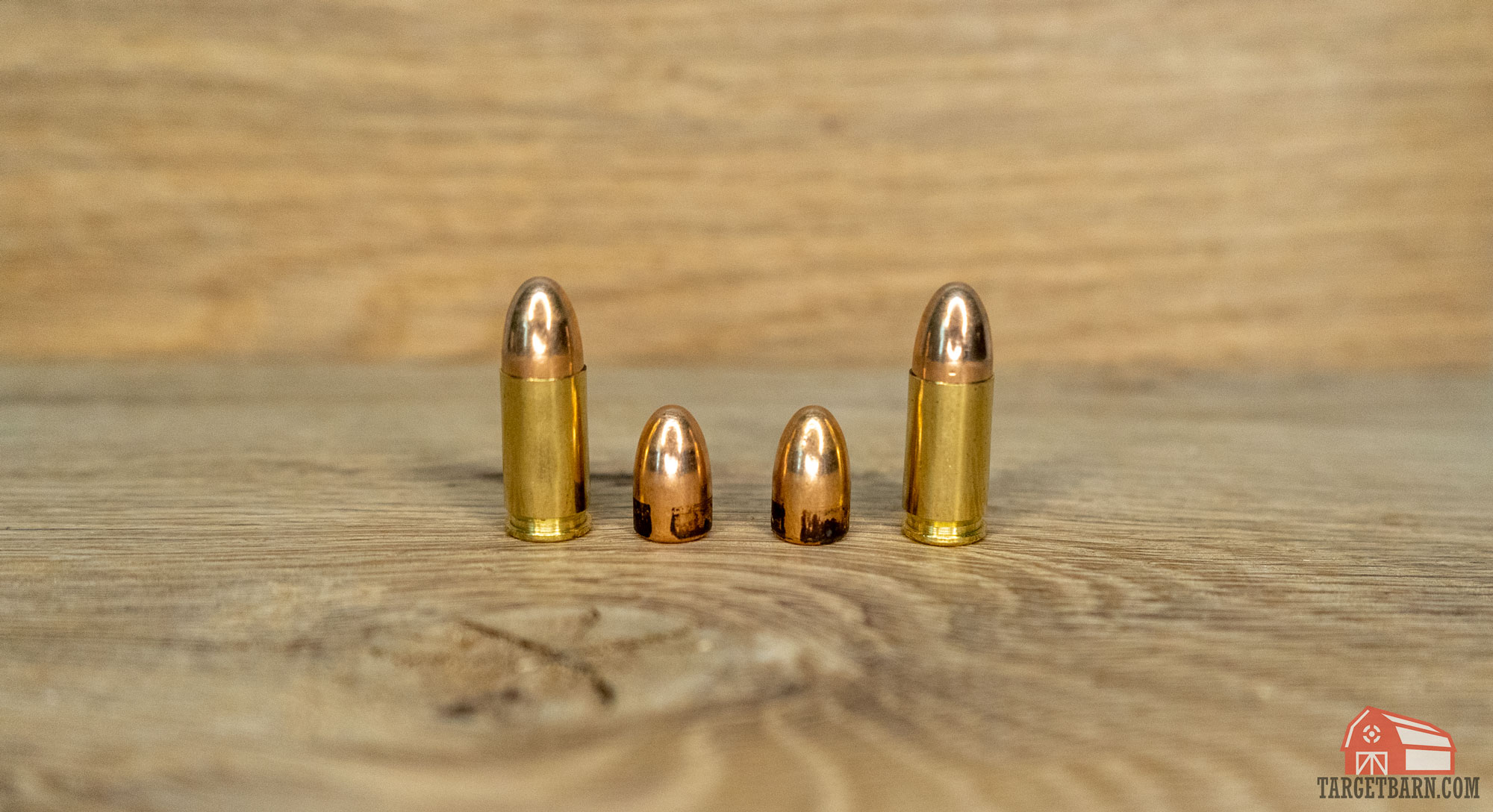
The difference between 115 grain vs. 124 grain 9mm ammo is the weight of the bullet, with 115 grain bullets being lighter than 124 grain bullets.
Because the bullets weight different amounts, the two rounds are loaded to different pressures. Generally, the heavier bullet will travel more slowly than a lighter bullet. For example, we can look at the differences in muzzle velocity in rounds from the same manufacturer with different bullet weights:
| Cartridge | Bullet Weight | Muzzle Velocity |
|---|---|---|
| Winchester Target 9mm FMJ | 115 Grain | 1190 fps |
| Winchester Target 9mm FMJ | 124 Grain | 1140 fps |
| PMC 9mm FMJ | 115 Grain | 1150 fps |
| PMC Bronze 9mm FMJ | 124 Grain | 1110 fps |
| Blazer Brass 9mm FMJ | 115 Grain | 1145 fps |
| Blazer Brass 9mm FMJ | 124 Grain | 1090 fps |
| Fiocchi 9mm FMJ | 115 Grain | 1200 fps |
| Fiocchi 9mm FMJ | 124 Grain | 1150 fps |
| Federal American Eagle 9mm FMJ | 115 Grain | 1180 fps |
| Federal American Eagle 9mm FMJ | 124 Grain | 1150 fps |
Basically, the 115 grain rounds are light and fast and the 124 grain rounds are heavy and slow.
115 Grain vs. 124 Grain Differences: Recoil
The recoil you feel from 115 grain vs. 124 grain 9mm ammo will largely depend on gun design or gun weight. There are some shooters who tend to think that 124 grain rounds have less felt recoil than 115 grain rounds because the bullet is moving slower out of the barrel. There are also shooters who say that the recoil of the 124 grain round feels less snappy than the 115 grain, and more like a push. However, unless you’ve put thousands of rounds down range, you might not even notice a difference in recoil between the two rounds.
One way to measure recoil is by calculating the power factor of the round. Power factor is a measurement used by shooting organizations like USPSA and IDPA for scoring and shooting division purposes. It is simply the bullet weight (in grains) multiplied by muzzle speed (fps), then divided by 1,000. The idea behind it is that the rounds with a higher power factor will have more power or recoil.
Using the same ammo from our example above, let’s look at how the power factors differ between 115 grain vs. 124 grain:
| Cartridge | Bullet Weight | Power Factor |
|---|---|---|
| Winchester Target 9mm FMJ | 115 Grain | 136 |
| Winchester Target 9mm FMJ | 124 Grain | 141 |
| PMC 9mm FMJ | 115 Grain | 132 |
| PMC 9mm FMJ | 124 Grain | 137 |
| Blazer Brass 9mm FMJ | 115 Grain | 131 |
| Blazer Brass 9mm FMJ | 124 Grain | 135 |
| Fiocchi 9mm FMJ | 115 Grain | 138 |
| Fiocchi 9mm FMJ | 124 Grain | 142 |
| Federal American Eagle 9mm FMJ | 115 Grain | 135 |
| Federal American Eagle 9mm FMJ | 124 Grain | 142 |
As you can see, every 124 grain round listed has a higher power factor than the 115 grain round. While the 124 grain would theoretically have more recoil than the 115 grain according to power factor, many shooters would probably disagree. Ultimately, felt recoil is pretty subjective, and therefore you should test out both flavors to see which feels best to you.
115 Grain vs. 124 Grain Differences: Accuracy
The accuracy difference between 115 grain and 124 grain will ultimately depend on the specific round and the gun you are shooting. The barreling of your gun might prove more accurate with some rounds over others.
Testing out different rounds and finding out what shoots best for you is the best way to determine what is most accurate.
115 Grain vs. 124 Grain for Self Defense
When it comes to self defense ammo, the debate of which round is better gets a little more serious. We decided to stack two self defense rounds against each other by shooting them into ballistic gel. The two rounds tested are:
- Fiocchi Defense Dynamics 115 Grain GR JHP
- Fiocchi Defense Dynamics 124 Grain GR JHP
In our test, we shot into ballistic gel at a distance of 10 feet with a gun with a 4″ barrel.
Fiocchi Defense Dynamics 9mm 115 Grain JHP in ballistic gel.
The three rounds of 115 grain 9mm penetrated between 20″-24″.

The 124 grain rounds penetrated between 16″-17.5″.
The FBI standard recommendation for penetration is 12-18″. In our test, the 124 grain rounds fall in line with the FBI recommendation when looking at penetration alone.
It should be noted that bullet design will play a big role in how rounds penetrate the ballistic gel. So while the bullet weight may play some part in your selection, you’ll want to look at how the round as a whole performs, and not just the weight of the bullet.
What Grain 9mm Bullet is Best?
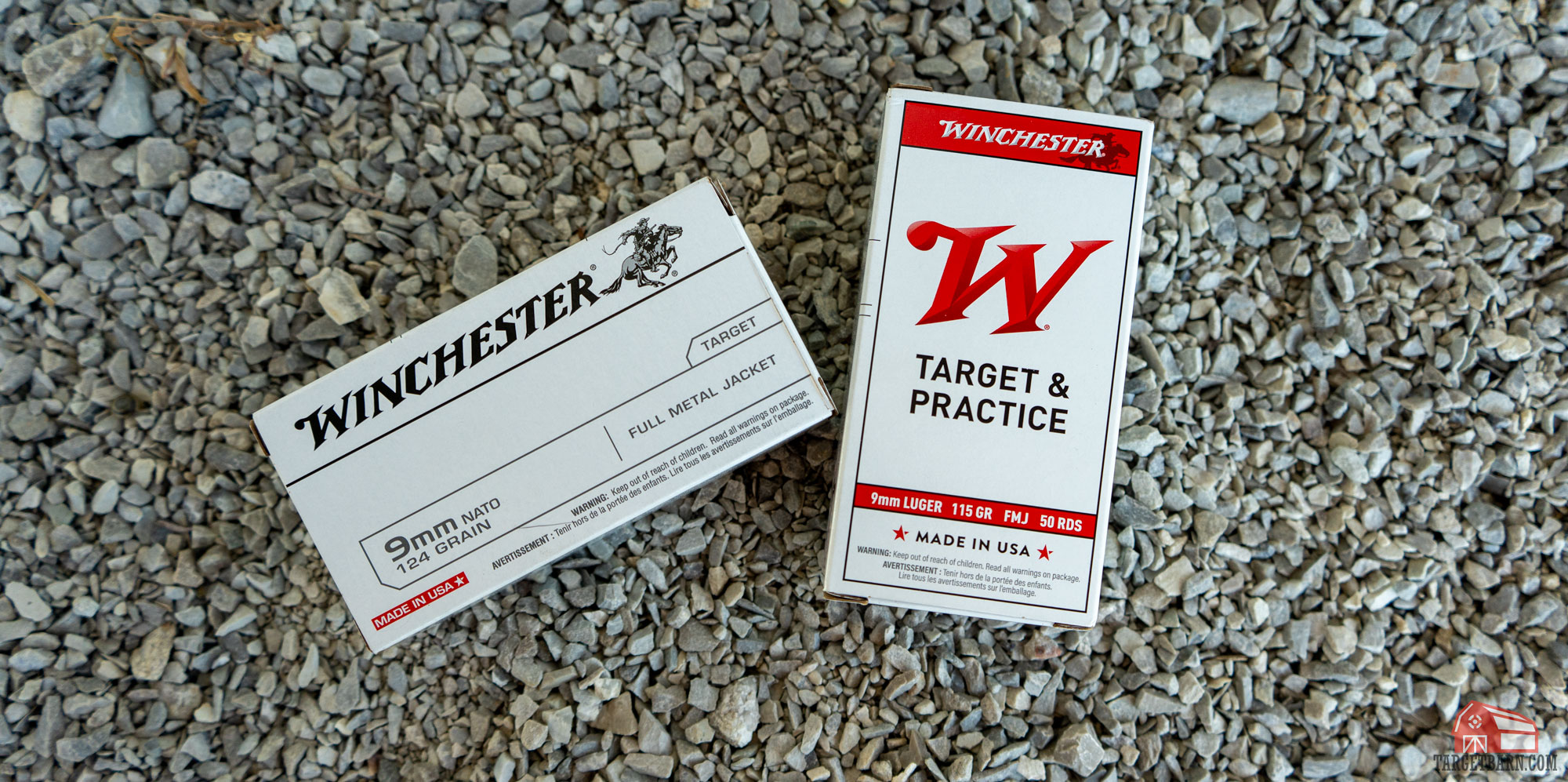
The best 9mm bullet weight will ultimately depend on what your gun shoots best and what your intended use is. You should also check your gun manual — some manufacturers actually advise what bullet weight will work best in your gun.
Ultimately, if you’re just training at the range, the differences between 115 grain and 124 grain 9mm rounds are negligible. Our recommendation is to find a round that works well for you and your gun, and stock up so that you’re always ready for a range day!

